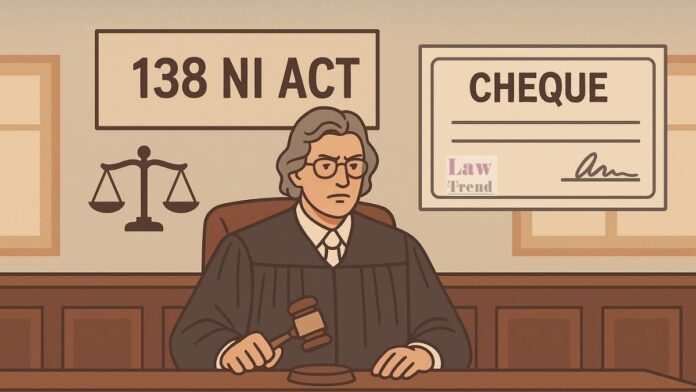The High Court of Delhi has dismissed a criminal revision petition challenging the conviction of a property dealer under Section 138 of the Negotiable Instruments Act, 1881 (NI Act). The Court held that a person who issues a cheque from their personal account to discharge a liability under a settlement agreement cannot evade criminal liability
To Read More Please Subscribe to VIP Membership for Unlimited Access to All the Articles, Download Available Copies of Judgments/Order, Acess to Central/State Bare Acts, Advertisement Free Content, Access to More than 4000 Legal Drafts( Readymade Editable Formats of Suits, Petitions, Writs, Legal Notices, Divorce Petitions, 138 Notices, Bail Applications etc.) in Hindi and English.




